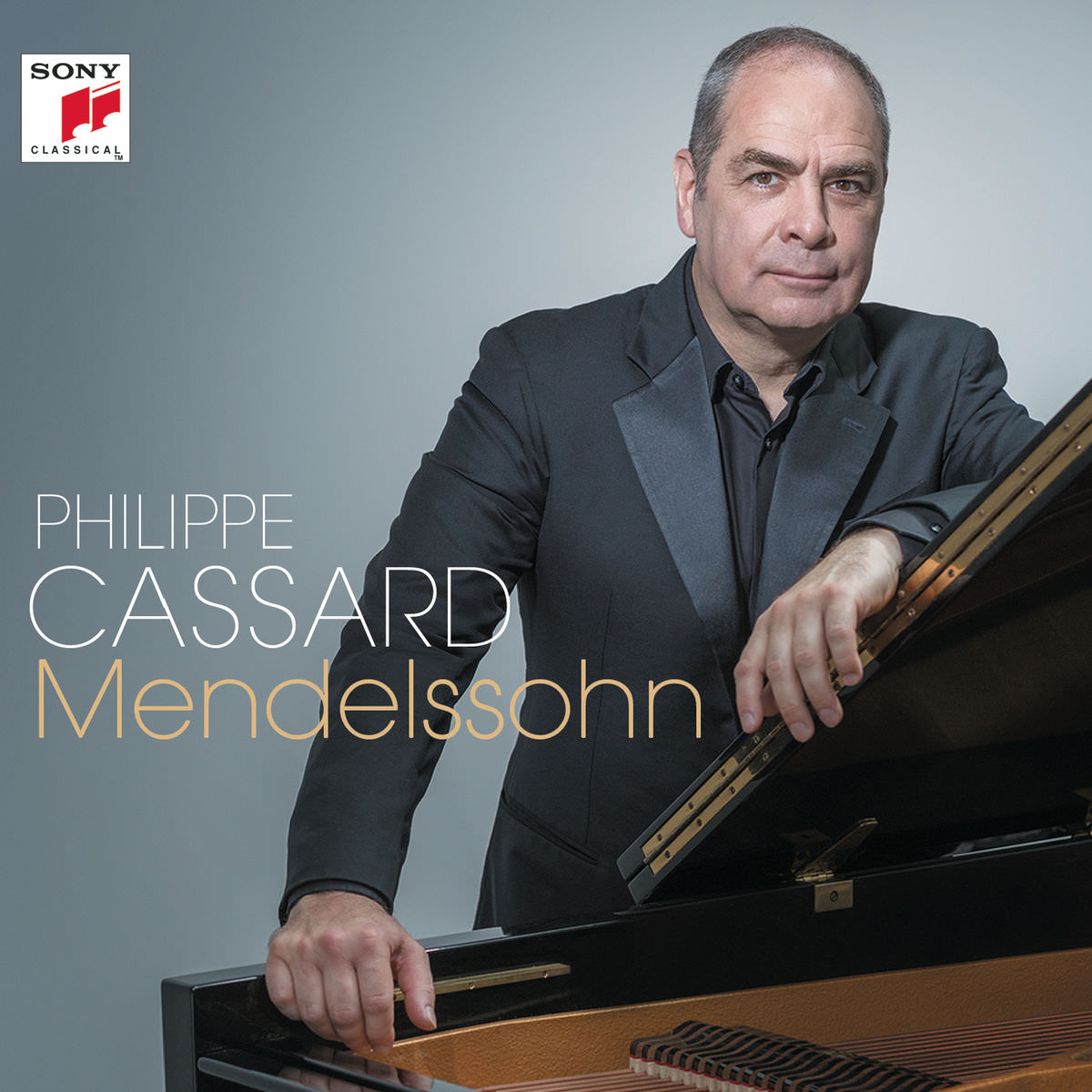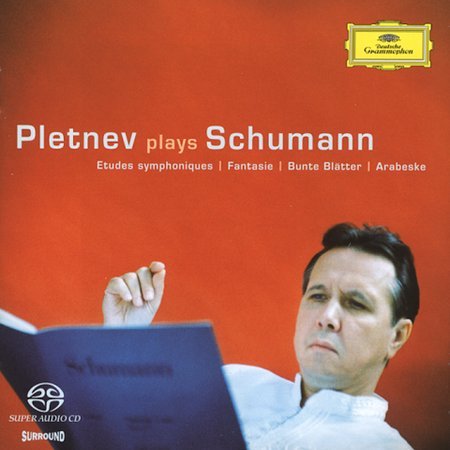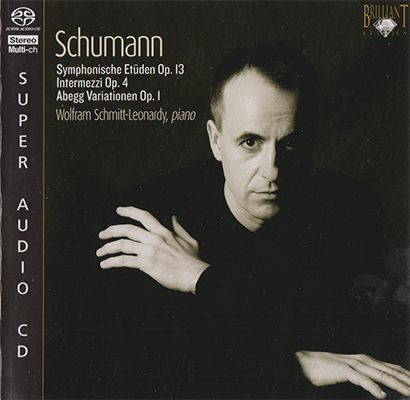
Philippe Cassard – Mendelssohn (2017)
FLAC (tracks) 24 bit/96 kHz | Time – 43:26 minutes | 693 MB | Genre: Classical
Studio Masters, Official Digital Download – Source: Qobuz | Booklet, Front Cover | © Sony Classical
When Felix Mendelssohn published his Melodies for the pianoforte with Novello in London in 1832, Robert Schumann had just published his Papillons and Frédéric Chopin, his Études op.10 and first mazurkas, while Franz Liszt was just beginning to compose his Album d’un voyageur, which would in due course serve as inspiration for Années de pèlerinage. Such musical diversity in such a short space of time reflects the extraordinary creative effervescence of the early Romantic period due to the influence of Beethoven and the improved great pianos made by Graf in Vienna, Broadwood in England and Érard and Pleyel in France. Despite the different paths taken by these musicians and the pianistic techniques they invented, aesthetic similarities do on occasion appear, symbolising a certain commonality in their sources of inspiration and expressive lyricism. Did Mendelssohn pioneer the “miniature” genre for piano? He was clearly one of the first to create a poetic universe in which the melody and accompaniment feature similar musical ideas. Beethoven had already tried this with, for example, the Adagio cantabile in the Sonata Pathétique, as had Schubert with some of his Moments Musicaux D.780. As for Mendelssohn, he condensed the “moment” into an “instant” and, having established the idea (perhaps as a result of his own virtuoso improvisation), he fashioned a kind of finely crafted little delight out of it. In this sense, the English title “Melodies for the pianoforte” is ideal for these “Lieder ohne Worte”, the title under which Bonn publisher Nikolaus Simrock released them, as was the more questionable title “Romances sans paroles” [Songs Without Words] which was nevertheless approved by Mendelssohn himself in an 1843 letter written in French to his Lyon publisher. Whether with or without words, Mendelssohn’s lieder often had identical forms: a short, understated theme wrapped up in a highly personalised pianistic formula. Each lied has its own character and writing. The melodic imagination which feeds into the eight books of “Romances” is gushing and constantly evolving, reflecting the spontaneity of Mendelssohn’s creative energy. It evokes a wealth of authentic emotions which reflect the ambivalence of the oft-tormented musician who experienced elation as well as melancholy, like a kaleidoscope of his thoughts. …
Tracklist
Felix Mendelssohn-Bartholdy(1809-1847)
1 Songs without Words, Op. 19, No. 1 in E Major: Andante con moto 03:13
2 Songs without Words, Op. 62, No. 6 in A Major: “Frühlingslied” 02:33
3 Songs without Words, Op. 19, No. 5 in F-Sharp Minor: “Piano agitato” 03:08
4 Songs without Words, Op. 67, No. 2 in F-Sharp Minor: “Leggiero” 02:04
5 Sonntagslied, S. 547/2 in A Major 02:17
6 Songs without Words, Op. 62, No. 5 in A Minor: “Venetianisches Gondellied” 02:46
7 Songs without Words, Op. 102, No. 5 in A Major: “Kinderstück” 01:18
8 Six songs, Op. 71, No. 6 in E Major: “Nachtlied” 02:53
Fanny Mendelssohn-Hensel (1805-1847)
9 Lied, Op. 6, No. 2 in B Major: Allegro vivace 04:32
10 Songs without Words, Op. 62, No. 3 in E Minor: “Funeral March” 03:00
11 Songs without Words, Op. 67, No. 4 in C Major: “Spinning Song” 01:51
12 Songs without Words, Op. 53 in F Major: Adagio 03:06
13 Songs without Words, Op. 67, No. 3 in B-Flat Major: Andante tranquillo 02:49
14 Songs without Words, Op. 53, No. 2 in E-Flat Major: “Innig” 02:23
15 Songs without Words, Op. 38, No. 2 in C Minor: Andante 02:18
16 Songs without Words, Op. 38, No. 6 in A-Flat Major: “Duetto” 03:15
Personnel
Philippe Cassard, piano
Download:




















![Louis Lortie plays Liszt - The Complete Annees De Pelerinage (2011) [FLAC 24bit/96kHz] Louis Lortie plays Liszt - The Complete Annees De Pelerinage (2011) [FLAC 24bit/96kHz]](https://getimg.link/images/imgimgimg/uploads/2017/01/lXJ1exi.jpg)
![Philippe Cassard, Natalie Dessay, Cedric Pescia, Orchestre National de Bretagne - Mozart à l'opéra (2022) [FLAC 24bit/96kHz] Philippe Cassard, Natalie Dessay, Cedric Pescia, Orchestre National de Bretagne - Mozart à l'opéra (2022) [FLAC 24bit/96kHz]](https://imghd.xyz/images/2022/12/17/jyeomqisop1rb_600.jpg)
![Francois Chaplin - Scriabin: Complete Mazurkas (2014) [FLAC 24bit/48kHz] Francois Chaplin - Scriabin: Complete Mazurkas (2014) [FLAC 24bit/48kHz]](https://getimg.link/images/imgimgimg/uploads/2019/11/ljwJ9WX.jpg)
![Ivana Gavric - Chopin (2017) [Qobuz FLAC 24bit/96kHz] Ivana Gavric - Chopin (2017) [Qobuz FLAC 24bit/96kHz]](https://getimg.link/images/imgimgimg/uploads/2017/12/OO5RvSX.jpg)
![Francesco Piemontesi - Liszt: Annees de pelerinage I, S. 160 "Suisse" & Legende No. 2 (2018) [FLAC 24bit/96kHz] Francesco Piemontesi - Liszt: Annees de pelerinage I, S. 160 "Suisse" & Legende No. 2 (2018) [FLAC 24bit/96kHz]](https://getimg.link/images/imgimgimg/uploads/2019/04/LYdI7Bn.jpg)
![Gala Chistiakova - Chopin Recital (2018) [FLAC 24bit/88,2kHz] Gala Chistiakova - Chopin Recital (2018) [FLAC 24bit/88,2kHz]](https://getimg.link/images/imgimgimg/uploads/2019/04/wYGDAHD.jpg)
![Jon Nakamatsu - Schumann Carnaval, Op. 9 - Papillons, Op. 2 - Sonata in G Minor, Op. 22 (2014) [Qobuz FLAC 24bit/88,2kHz] Jon Nakamatsu - Schumann Carnaval, Op. 9 - Papillons, Op. 2 - Sonata in G Minor, Op. 22 (2014) [Qobuz FLAC 24bit/88,2kHz]](https://getimg.link/images/imgimgimg/uploads/2018/06/jl9j8GM.jpg)
![Hiroaki Takenouchi - Sterndale Bennett: Piano Sonata, Op. 13; Schumann: Symphonic Etudes, Op. 13 (2017) [Qobuz FLAC 24bit/48kHz] Hiroaki Takenouchi - Sterndale Bennett: Piano Sonata, Op. 13; Schumann: Symphonic Etudes, Op. 13 (2017) [Qobuz FLAC 24bit/48kHz]](https://getimg.link/images/imgimgimg/uploads/2017/11/ER3n7zE.jpg)
![Konstantin Scherbakov - 24 Transcendental Etudes (2019) [FLAC 24bit/192kHz] Konstantin Scherbakov - 24 Transcendental Etudes (2019) [FLAC 24bit/192kHz]](https://getimg.link/images/imgimgimg/uploads/2019/07/og8i6jD.jpg)

![Andras Schiff - Beethoven: Diabelli-Variationen, Op. 120 (2013) [HDTracks FLAC 24bit/44,1kHz] Andras Schiff - Beethoven: Diabelli-Variationen, Op. 120 (2013) [HDTracks FLAC 24bit/44,1kHz]](https://getimg.link/images/imgimgimg/uploads/2017/02/Zuaqo6e.jpg)
![Maurizio Baglini - Schumann: Kreisleriana, Davidsbundlertanze, Kinderszenen (2018) [FLAC 24bit/96kHz] Maurizio Baglini - Schumann: Kreisleriana, Davidsbundlertanze, Kinderszenen (2018) [FLAC 24bit/96kHz]](https://getimg.link/images/imgimgimg/uploads/2018/06/3s0Ucl9.jpg)
![Olivier Korber - Double jeu (Chopin, Etudes, Op. 25) (2018) [FLAC 24bit/96kHz] Olivier Korber - Double jeu (Chopin, Etudes, Op. 25) (2018) [FLAC 24bit/96kHz]](https://getimg.link/images/imgimgimg/uploads/2019/04/uKrlnO9.jpg)

![Andrei Korobeinikov - Scriabine: Complete etudes (2014) [FLAC 24bit/44,1kHz] Andrei Korobeinikov - Scriabine: Complete etudes (2014) [FLAC 24bit/44,1kHz]](https://getimg.link/images/imgimgimg/uploads/2018/08/9sPaS2j.jpg)